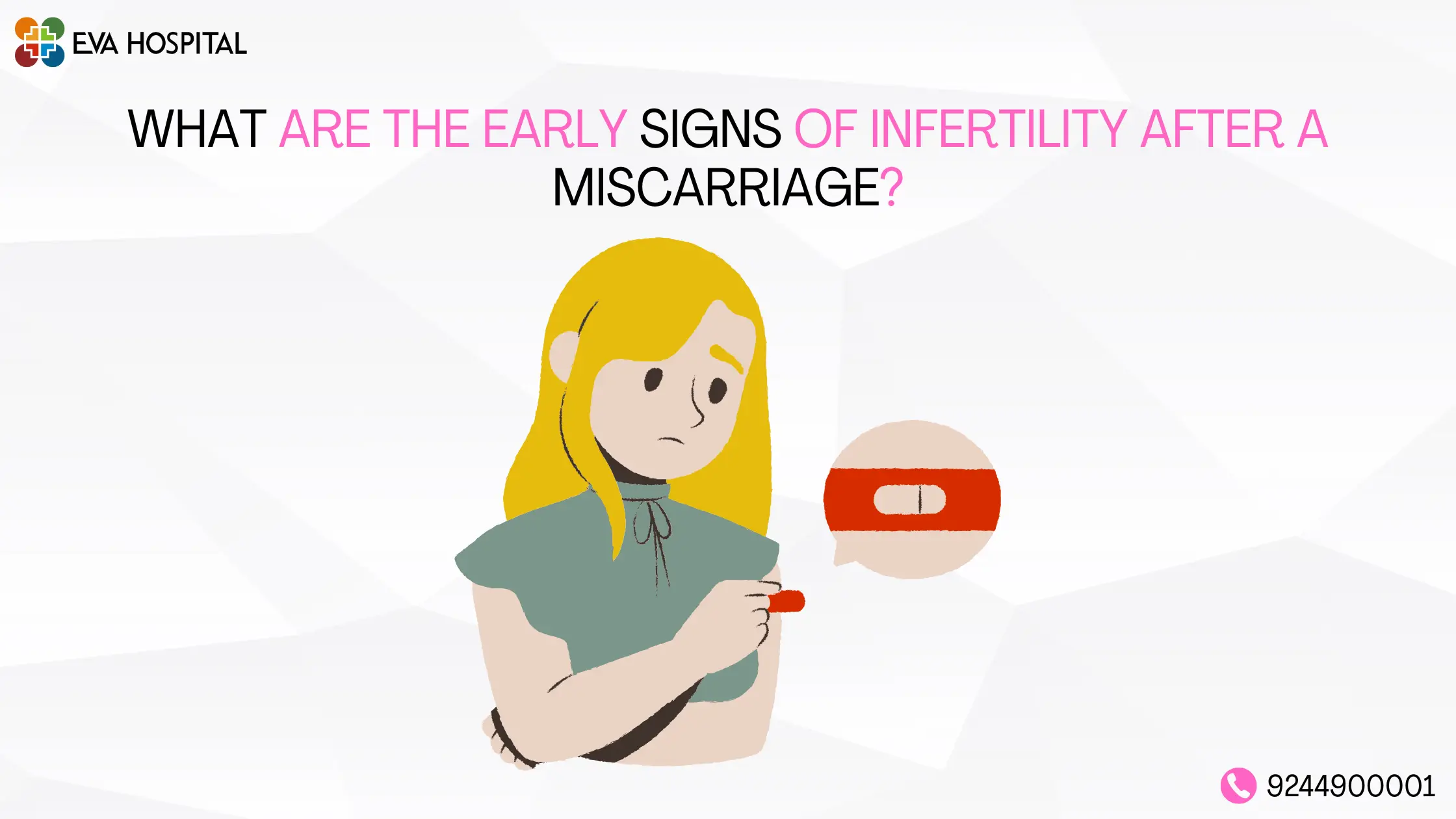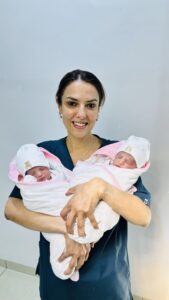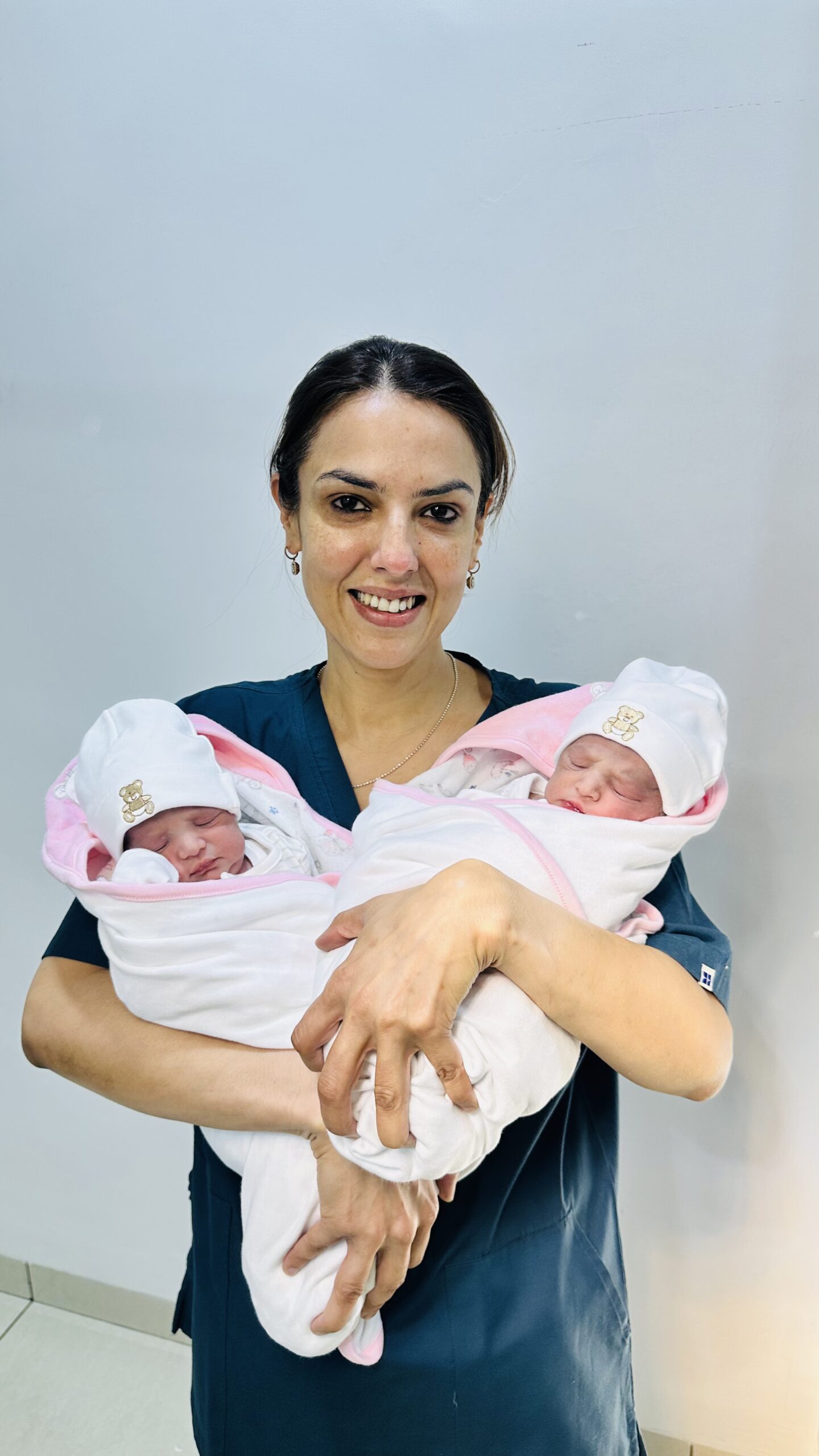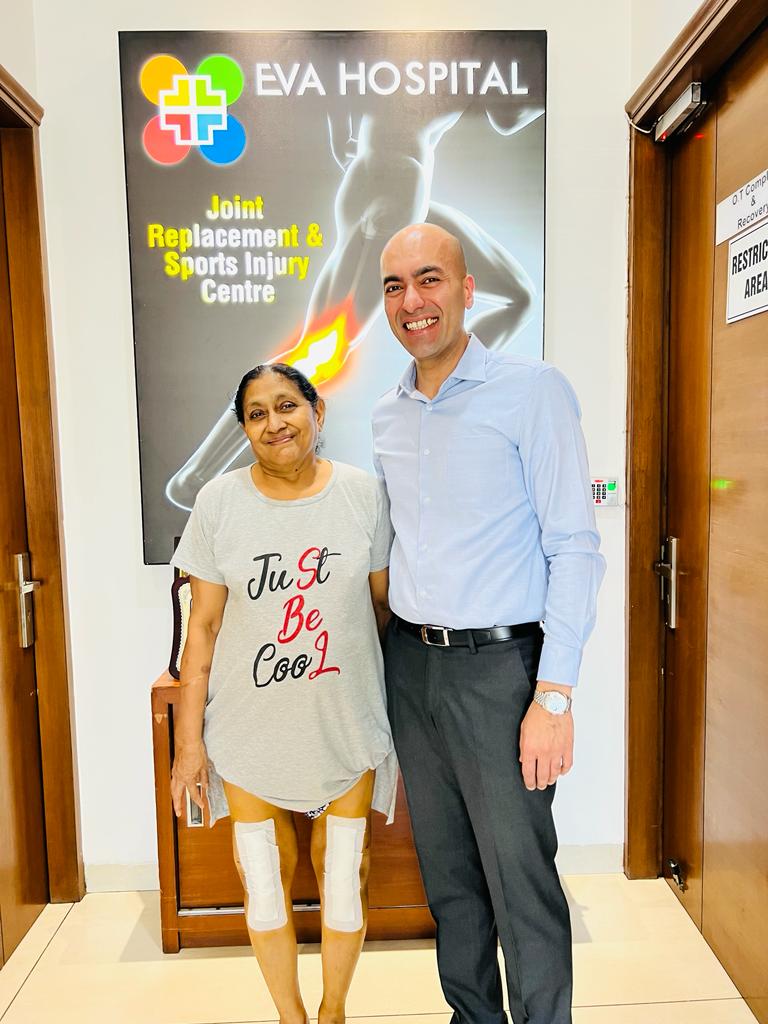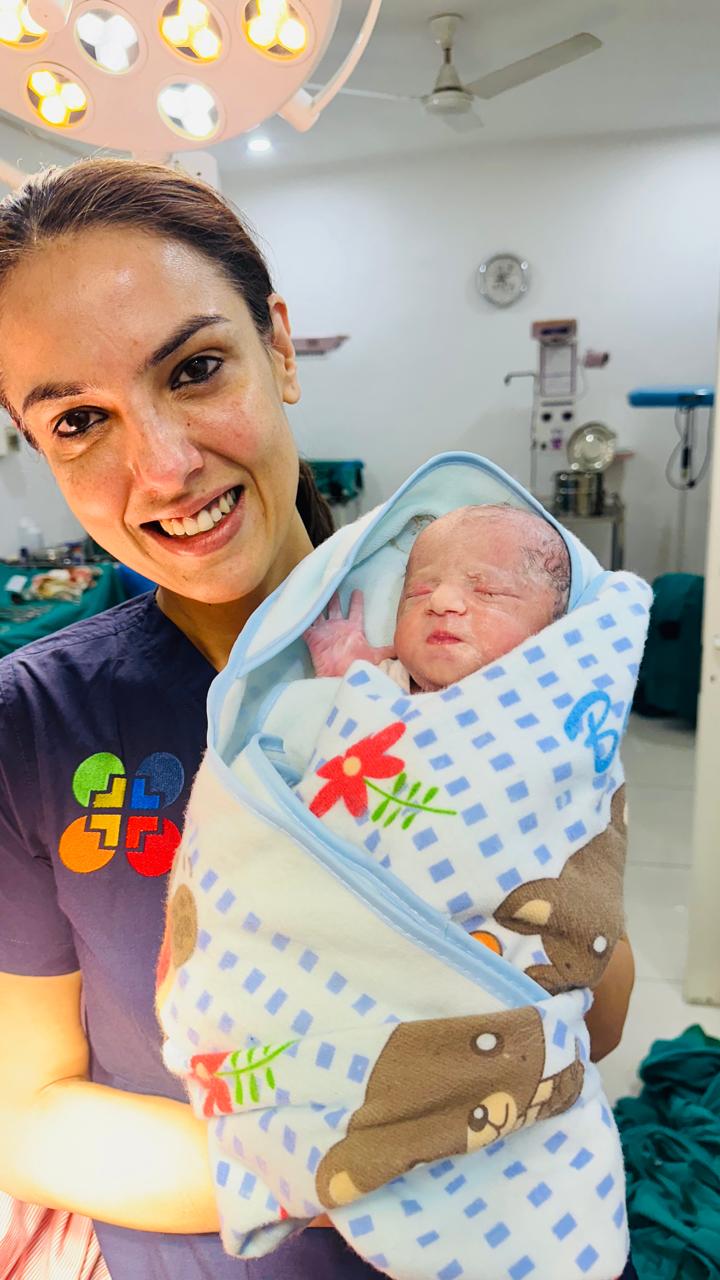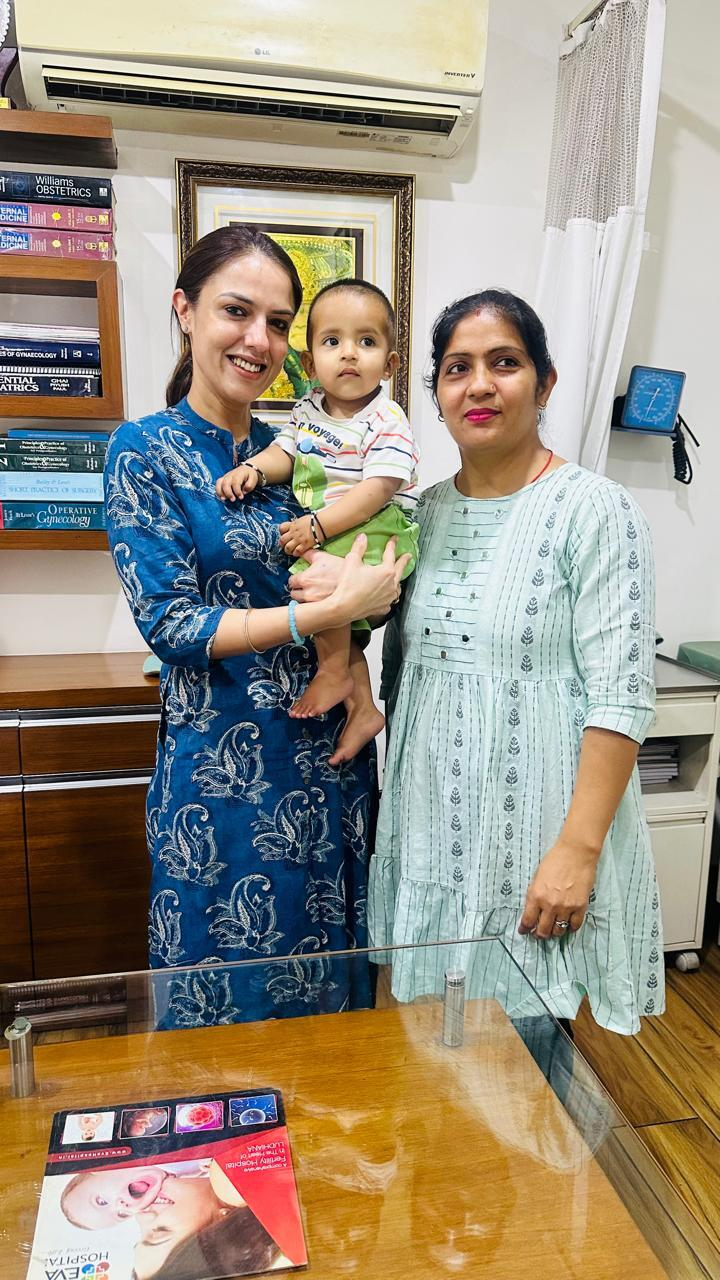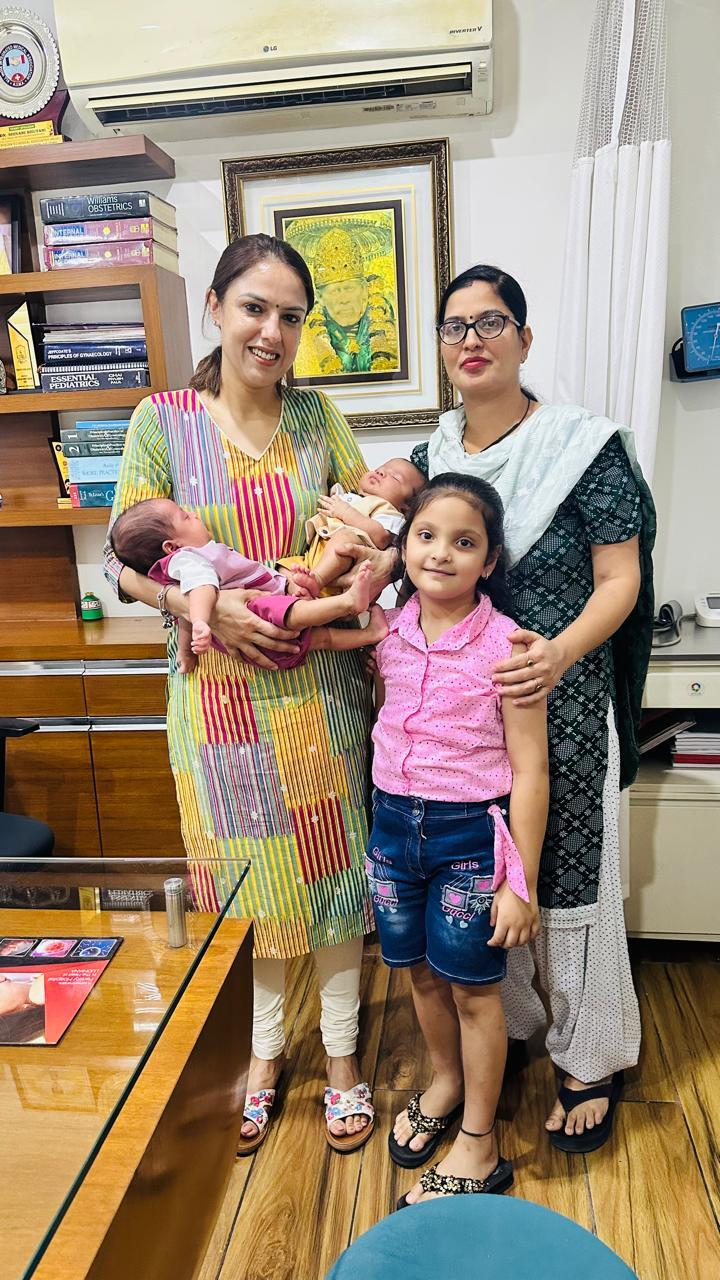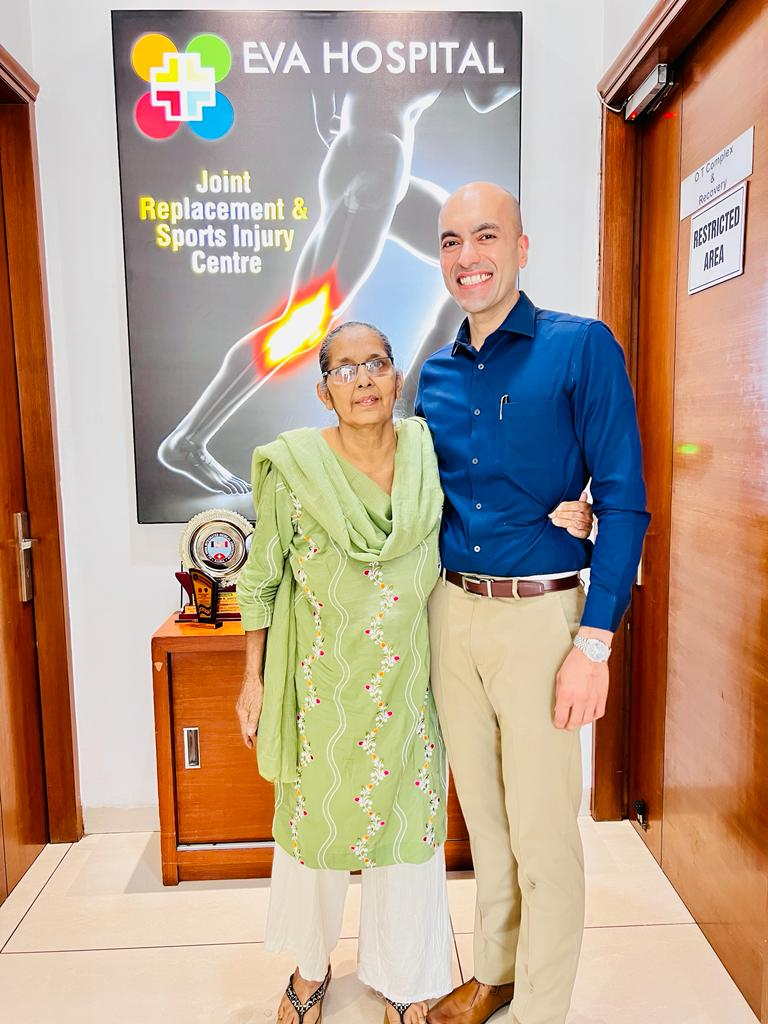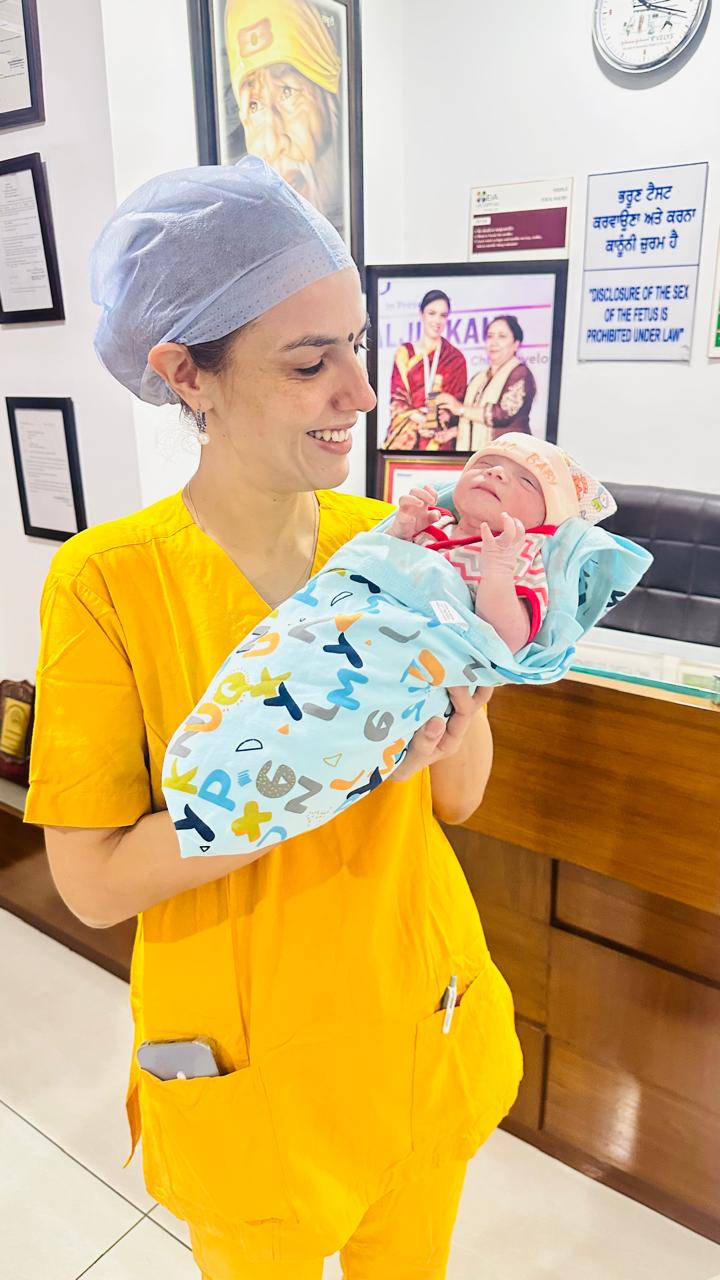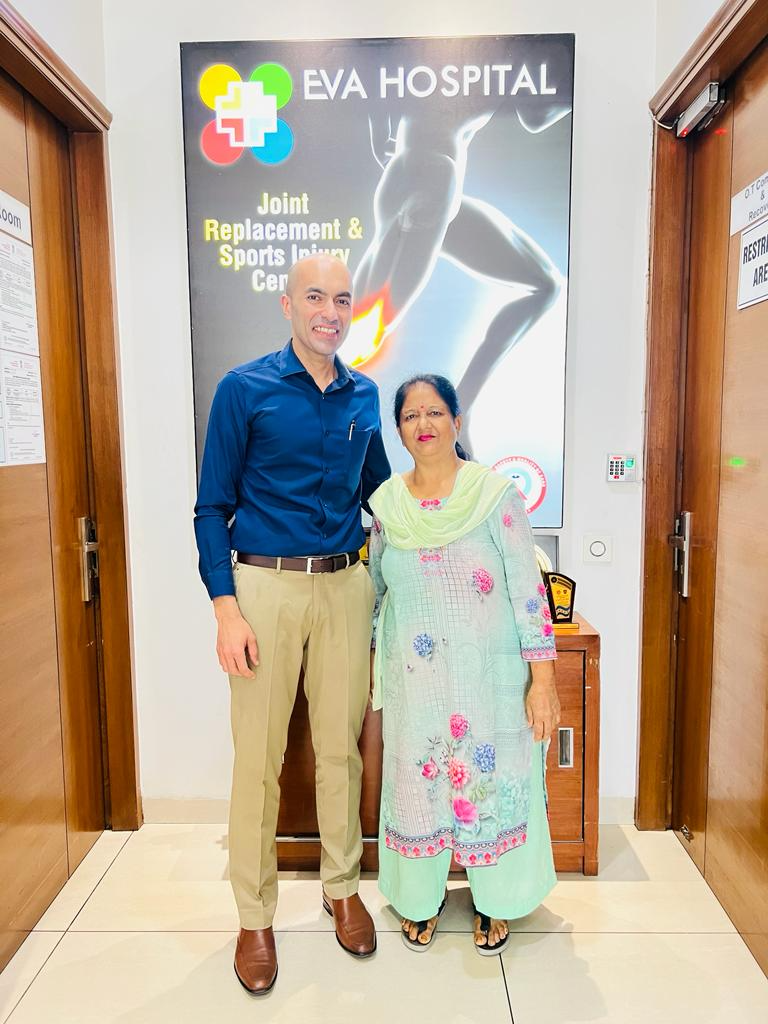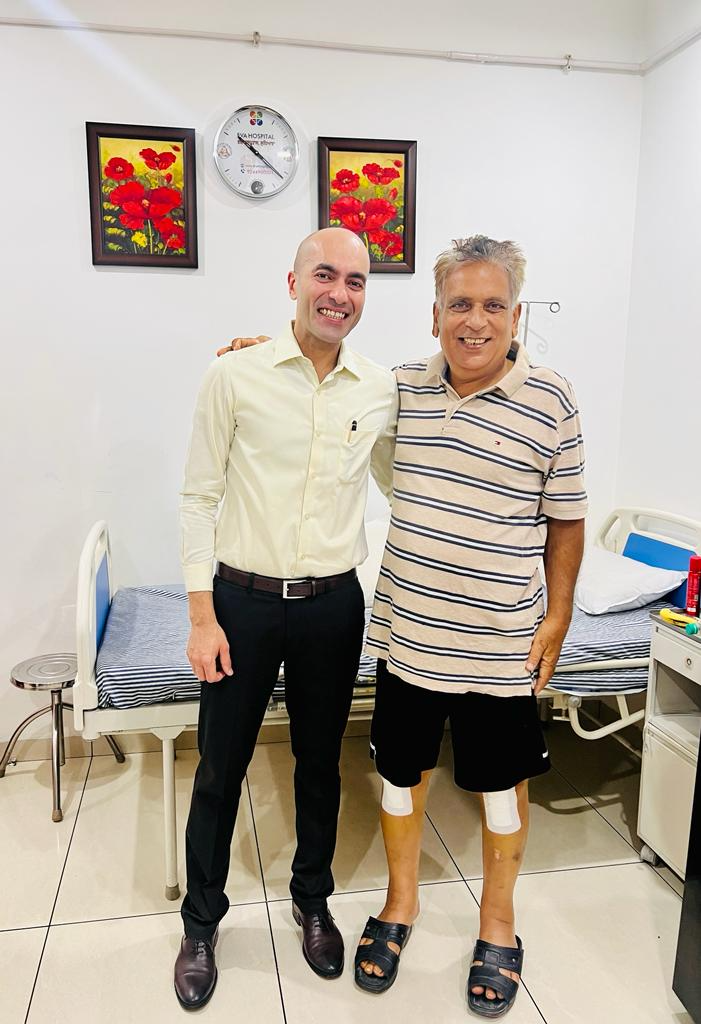Summary
The majority of women naturally conceive again after a miscarriage though some of them may experience problems like irregular periods, hormonal imbalance or even conceiving months after. These could point to conditions like secondary infertility or structural changes in the uterus. One should not panic, because recognizing signs of infertility after miscarriage with early diagnosis and treatment will count a lot. You have been making efforts and have not achieved any result particularly after six months then it would be prudent to visit a fertility specialist to eliminate other factors.
Introduction
Hi there I am Dr Shivani Bhutani the best gynaecologist in Ludhiana. Being a specialist in the field of fertility, the most frequent questions that I hear immediately after the miscarriage from my patient is: “Will I manage to become pregnant again?” Well, Miscarriage is devastating, and it has a natural way of throwing doubts to the fertility of women. The fact is that the majority of women end up bringing successful pregnancies later, but in others, problems might appear. Recognizing the signs of infertility after miscarriage can help you act early and get the right treatment.
In this article, I shall take you through the probable causes, symptoms, and remedies to infertility following the miscarriage in easy down-to-earth language. We shall also discuss when you may need medical help and how you can increase your possibilities of getting a second child.
What Is the Reason for Not Getting Pregnant After a Miscarriage?
After pregnancy loss, many women ask, “Doctor, what is the reason for not getting pregnant again?” The reasons vary. At times it is just that your body requires time to recuperate- hormonally and physically. In other occasions, it may have some medical reasons like ovulation problems, scarring within the uterus or the declining fertility brought about by age. One needs to know that a miscarriage does not indicate that a person cannot have children forever. Most women simply need to be patient and recover but when months have elapsed to no avail then medical work needs to be done.
Healing Phase After Miscarriage
The hormone system and uterus require time to come to balance. Ovulation is reinstated after 4-6 weeks in some women and may require more time in others. In this stage, it is often normal not to conceive although it is temporary.
When to Suspect a Problem
When your cycles continue to be irregular, periods do not resume, or you experience things such as pelvis pain or unusual discharge, it can indicate that something is out of the ordinary healing in its interference with fertility.
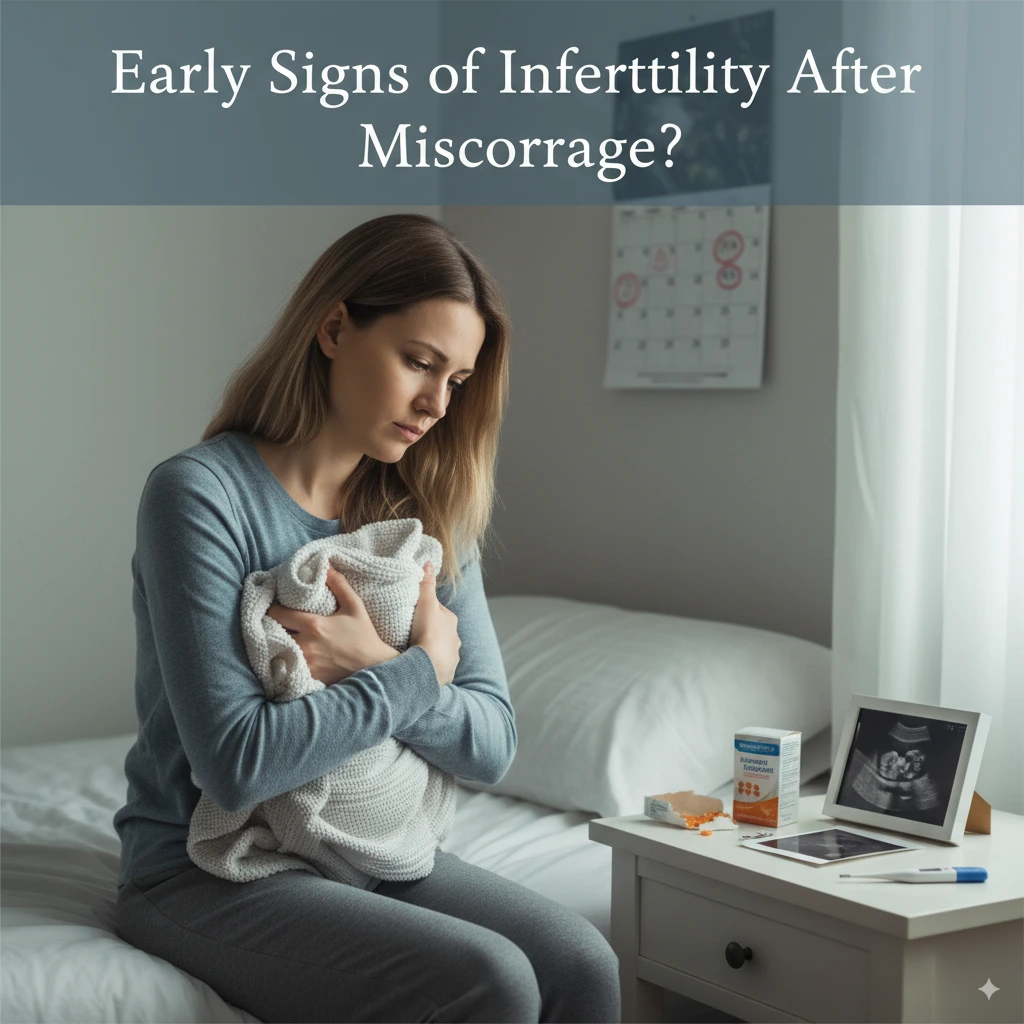
What Are the Causes of Infertility After Miscarriage?
The causes of infertility after miscarriage are varied. Some women are able to become pregnant again soon, but others can have difficulties. The most common causes are hormonal disruptions, structural abnormalities in the uterus, obstructions in fallopian tubes, or infertility of the male. In other cases, it may cause inside the uterus the scar tissue due to the miscarriage itself, which may have a certain impact on the implantation.
Main factors affecting recovery and conception are also age and lifestyle. To determine the treatment options, it is necessary to identify the root cause as treatment varies based on the issue whether it is a hormonal problem, anatomical, or a sperm health problem.
Hormonal Imbalances
Such conditions as PCOS, thyroid or low progesterone levels may inhibit the correct ovulation and predispose towards repeated miscarriage or infertility.
Structural Causes
Physical causes include uterine scarring (Asherman syndrome), fibroids or obstruction of the fallopian tubes, which can stop pregnancy following ovulation.
| Concern | What It Means | When to Worry | Doctor’s Advice |
|---|---|---|---|
| What is the reason for not getting pregnant after miscarriage? | The body may still be healing; hormones and uterus lining need time. | If cycles don’t return or conception doesn’t occur after 6–12 months. | Track cycles, allow recovery, and consult if delays persist. |
| Causes of infertility | Hormonal imbalances, uterine scarring, blocked tubes, low sperm quality. | If you have irregular periods, pain, or multiple failed attempts. | Get fertility tests for both partners. |
| Not conceive pregnancy after trying | May be due to ovulation issues or sperm factor. | If no ovulation signs or abnormal semen analysis. | Consider ovulation induction or IUI/IVF if needed. |
| Secondary infertility | Difficulty conceiving after already having a child. | More common after 35 or post-miscarriage complications. | Early evaluation and treatment improve outcomes. |
| Miscarriage and infertility | Usually not directly linked, but repeated losses raise concern. | After 2–3 consecutive miscarriages. | Genetic, hormonal, and uterine investigations are required. |
| 3 months after miscarriage still not pregnant | Often too soon — body may not have fully recovered. | If cycles remain irregular or absent. | Don’t panic, but check hormones if no periods return. |
| Pregnancy after miscarriage | Usually possible within a few cycles. | If pregnancy doesn’t occur within a year. | Try after 2–3 cycles; seek help sooner if older than 35. |
| Signs of infertility after miscarriage | Irregular periods, no ovulation, pelvic pain, failed attempts. | If persistent beyond 6 months of trying. | Fertility specialist evaluation recommended. |
| Pregnancy loss as sign of secondary infertility | One miscarriage doesn’t mean infertility. | Repeated pregnancy losses. | Detailed fertility work-up essential. |
| Getting pregnant after miscarriage | Possible with medical/lifestyle support. | If ongoing delays despite healthy habits. | Lifestyle changes + medical treatment can restore fertility. |
What Is the Reason for Not Getting Pregnant Even After Trying for Months?
Some women tell me, “I’m trying regularly but still not conceive pregnancy.” In case this is occurring, it might be due to failure of ovulation to occur normally, the lining of the uterus is not conducive enough, or the quality of sperms is also poor.
Couples take months before they understand that there is something wrong with the medical side that can be fixed. That is the reason why both partners should be evaluated. It is not a blame game but infertility is a common problem and it has to be tackled at the same time.
Ovulation and Egg Quality
When the release of eggs is irregular or they have low quality owing to old age or hormonal disorders, then despite constant attempts, conception is impossible.
Male Factor Contribution
The cause of poor motility, low sperm count or abnormal sperm shape are often ignored but could be the actual cause as to why pregnancy does not occur.
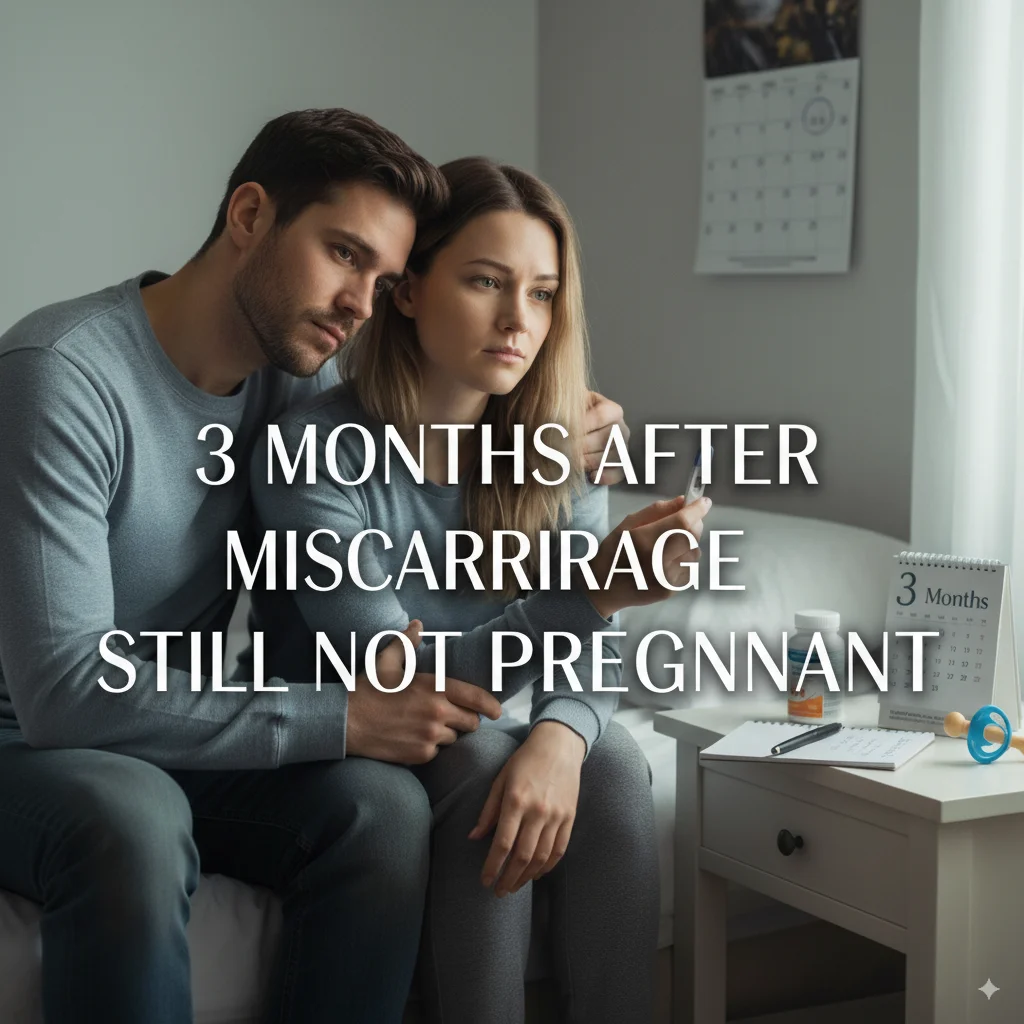
What Is Secondary Infertility After Miscarriage?
Secondary infertility means difficulty conceiving after already having had one or more successful pregnancies. It may occur following a miscarriage since in some cases, the reproductive system will change or age will be a major determinant.
This comes out shocking to many women who are of the assumption that once they have conceived, it is easy to conceive again. But it is unfortunate that fertility may reduce rapidly after 35. That’s why understanding secondary infertility is important — it’s treatable but needs timely attention.
Age-Related Decline
As one ages, the quality and quantity of eggs starts reducing tremendously and it is possible to explain why it is difficult to get pregnant again after losing one.
Structural or Hormonal Shifts
Conditions like endometriosis, uterine scarring, or hormonal imbalances may develop later in life, even after a healthy pregnancy, leading to secondary infertility.
Miscarriage and Infertility: Are They Always Connected?
Most women have the fear that in case of miscarriage, they will be doomed to infertility. The fact is that, miscarriage and infertile are not necessarily related. Majority of the women who undergo one miscarriage deliver again without difficulties.
The recurring miscarriages could however be a manifestation of an underlying problem with fertility. Also worth considering is that a single miscarriage is usually the result of a random genetic complication with the embryo and not an irreversible malfunction within the female body.
When Miscarriage Doesn’t Affect Fertility
One loss is usually only an accident, and it does not necessarily permanently alter your future fertility.
When It Signals an Issue
Several miscarriages or miscarriage and subsequent inability to conceive could indicate aberrancies such as low egg quality, abnormality of the uterus or clotting diseases.
Why Am I 3 Months After Miscarriage Still Not Pregnant?
Many women panic when they are 3 months after miscarriage still not pregnant. However, it is worth bearing in mind that three months are too soon to speak of the recovery process. Most of the couples conceive again after an average of 6-12 months.
Fertility experts normally advise against trying again actively until at least 2-3 cycles have elapsed. But when you get unusual cycles, or no ovulation after 3 months, it is perhaps time to get your doctor to reassure you.
The Role of Emotional Recovery
Stress, anxiety, and grief can affect hormone balance, ovulation, and fertility, even if the body is otherwise healthy.
When to Seek Medical Guidance
The lack of any sign of menstruation or ovulation after three months can be taken to be a symptom of a hormonal imbalance or one of the changes in the uterus, which should be examined by the doctor.
How Soon Can You Plan Pregnancy After Miscarriage?
One of the most common questions is about pregnancy after miscarriage timing. The majority of doctors recommend that one waits 2-3 menstrual periods before attempting again. This will help the uterine lining to regenerate and the hormones to normalize, which will provide your following pregnancy with the best chances of success.
Nevertheless, each case is an individual one – there are women who can be recommended to wait more basing on their health status or miscarriage complications.
Why Waiting Helps
Healing time helps to avoid another miscarriage and the body recover to give birth to a healthy entity.
Risks of Rushing
Premature attempts can result in further premature losses particularly when the lining of the uterus is not ready.
What Are the Signs of Infertility After Miscarriage?
Identifying the signs of infertility after miscarriage is important because it allows for early treatment. These signs may include irregular or absent periods, no signs of ovulation (like cervical mucus or ovulation pain), difficulty conceiving despite months of trying, and chronic pelvic pain.
If you notice these symptoms, don’t ignore them. They may point to an underlying condition such as hormonal imbalance, PCOS, endometriosis, or uterine scarring.
Menstrual Changes
Too short or too long cycles, very painful or absent cycles can be indicative of fertility issues.
Ovulation Issues
Absence of ovulation symptoms or recurrently negative ovulation test kits have the potential to indicate hormonal/ovarian issues.
Pregnancy Loss: Is It a Sign of Secondary Infertility After a Miscarriage?
A common concern is whether pregnancy loss is a sign of secondary infertility after a miscarriage. Although a single loss is not a likely predictor that you are infertile, recurring losses may indicate underlying problems.
Recurring miscarriages can be associated with chromosomal malformations, clotting or problems with the uterus. This is why evaluation should be sought in case of two or more pregnancy losses.
When It’s Just Chance
One miscarriage is often due to random chromosomal problems and doesn’t predict future infertility.
When It’s a Warning
If pregnancy loss happens repeatedly, it may indicate secondary infertility and should prompt a full fertility workup.
How to Improve Chances of Getting Pregnant After Miscarriage
Struggling with getting pregnant after miscarriage can be frustrating, but the good news is there are effective strategies. These include medical and lifestyle modification.
The point is the early diagnosis and an individual approach towards treatment. Fertility experts may advise you according to your age, health and any special problems.
Medical Support Options
The use of fertility interventions like ovulation induction, hormonal therapy or uterine abnormality correction can help significantly increase the possibility of conception.
Natural Ways to Boost Fertility
Blended diet with moderate exercise, relieving stress, avoiding smoking and alcohol are the easy but effective methods of making oneself fertile naturally.
FAQ’s
The majority of the couples conceive between 6-12 months following a miscarriage.
Nay, a single miscarriage does not often signify sterility. A good number of women become pregnant thereafter.
Wait 6 to 12 months if you are less than 35, make use of help after 6 months of attempting.
It is true that stress may disrupt ovulation and postpone conception.
The common diagnostic tools include blood hormone tests, ultrasound, hysteroscopy and semen analysis.

